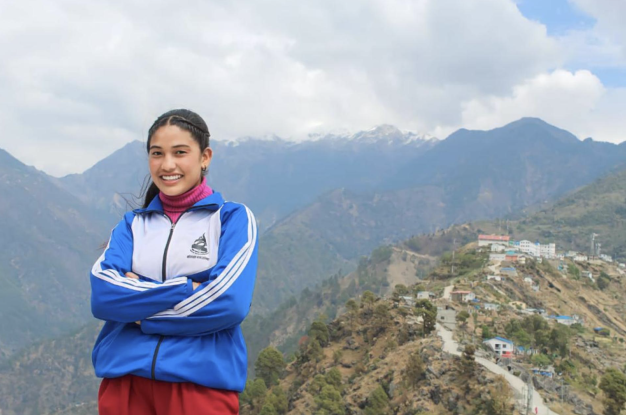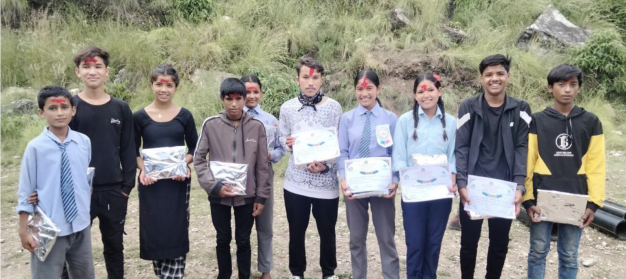
Nurturing young champions for children
In western Nepal, UNICEF is partnering with local governments to help children become stronger, effective advocates for child rights and child-friendly governance.
Kalikot, Nepal: Urmila Karki, a seventh-grade student from Khandachakra Municipality in Kalikot District, Nepal, was initially intrigued when she first heard about the concept of child clubs in 2019. She had assumed it was something related to sports or entertainment, but upon learning that child clubs are a means to protect and promote children’s rights, she became interested in being part of one.
Khandachakra Municipality had partnered with UNICEF, with funding from the Finnish National Committee, to introduce a new program for forming and mobilizing child clubs across various wards and schools, including Urmila’s own Chulimalika Secondary School.
And so, as soon as there was a call for interested students to join the school’s child club, Urmila put herself forward and became a member.
At the outset, Urmila and other child club members faced challenges in terms of the learning curve. However, through their proactive approach of speaking to officials at the local government office during their lunch break, they soon found their footing. “We wanted to learn as much as we could about what the local government was already doing for child rights and child protection, as well as any future programmes they had planned,” she says.“We felt this would help us to think outside the box for our own plans and activities.”

UNICEF Nepal/2022/GBRawal
Urmila and her fellow child club members supported the municipality in organising a consultation with all functioning child clubs in the area. The consultation was a success: not only did it bring children’s issues to the fore, but also resulted in the formation of a local-level child club network comprising 15 members (nine girls, six boys), with Urmila selected to lead them as the network chair.
“The more I learned about clubs, the more interested I became,” Urmila says. “I felt that it was a great way to work to bring about positive change for children and young people in not just our schools, but also the community and larger society.”
“I felt really inspired to work harder,” she says of the moment.
Over the next three years, Urmila and other child club members in Khandachakra were provided a host of learning and leadership opportunities through the partnership between UNICEF and the municipality. These included trainings in strengthening child protection and participation; the role of community-level child protection mechanisms; prevention of gender-based violence and child marriage; and local governance and planning processes, among others.
The child clubs also worked with the municipality to regularly organise programmes including street dramas, quizzes and singing competitions based on the local ‘deuda’ tradition to amplify awareness and increase support for preventing gender-based violence, child marriage and other harmful practices in the community. Additionally, they were tasked with reporting incidents of abuse or exploitation to the Child Helpline or to the ward or municipality offices.
Through their efforts, the initiative successfully engaged over 1,000 children between 2020 to 2022.

UNICEF Nepal/2022/GBRawal
Urmila (second from left) at an event organized for Women’s Day.
Urmila, who has been serving as the chairperson of the municipal-level child club network since 2022, says that being part of the child club enabled her and her friends to become much more effective advocates for the rights of children and young people.
One notable example was when the child club network called for a meeting with municipal officials to discuss the various risks and challenges faced by children and pushed for the allocation of sufficient budget to address these. This was followed by a joint visit with an elected representative to monitor and observe the situation of children in the community.
“Thanks to all that we had learned from the child club, we knew we needed to make it a priority to engage with government officials to bring children’s rights into their planning and budgeting processes,” Urmila, now 17, says. “That’s where our focus is going to continue to be.”
Republished by kind permission of UNICEF Nepal: https://www.unicef.org/rosa/stories/nurturing-young-champions-children




